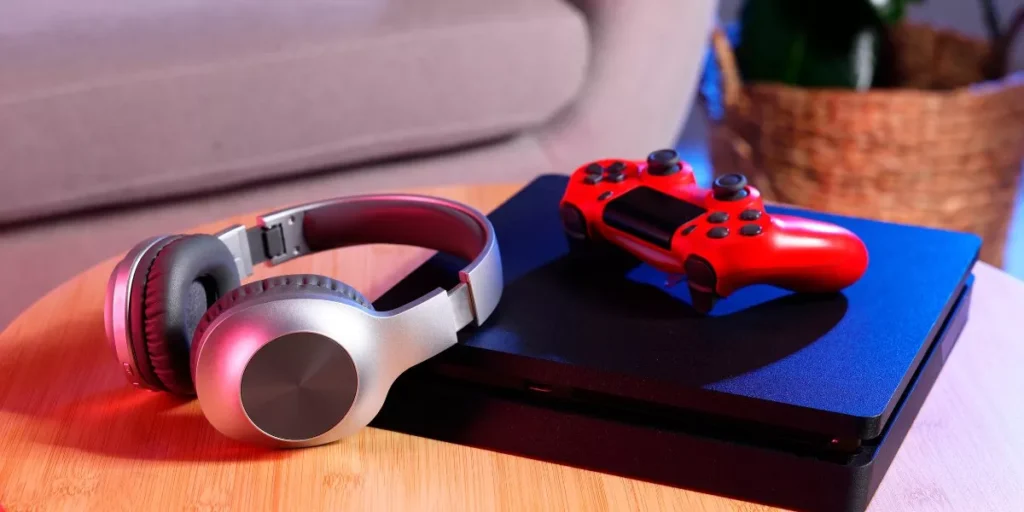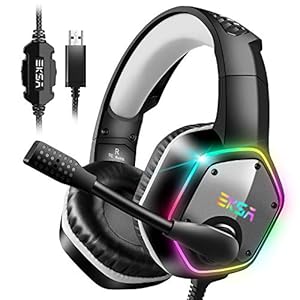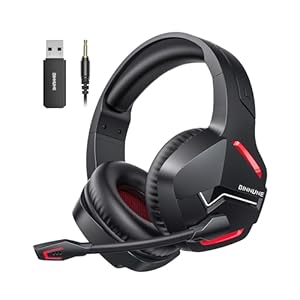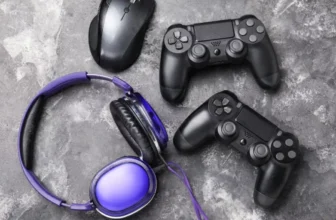
When it comes to choosing between wireless and wired gaming headsets, the question of reliability often sparks debate among gamers. While wireless options offer the allure of freedom from cables, there are lingering concerns about their dependability compared to the tried-and-true wired models. Factors like latency, battery life, and overall performance play significant roles in determining whether wireless gaming headsets can truly stand toe-to-toe with their wired counterparts. So, before making a decision, it’s essential to weigh the pros and cons carefully to ensure your gaming experience is seamless and uninterrupted.
Sound Quality Comparison
When comparing sound quality between wireless and wired gaming headsets, you’ll notice distinct differences in the nuances of audio delivery. Wired headsets generally provide a more stable and consistent audio experience due to the direct connection to the device, ensuring minimal interference and loss of signal. The wired connection allows for higher fidelity audio transmission, making it ideal for gamers who prioritize sound quality and immersion in their gameplay.
On the other hand, wireless gaming headsets offer convenience and freedom of movement without being tethered to your device. However, this wireless technology can sometimes result in slightly lower sound quality compared to wired headsets. The audio signals may experience minor disruptions or latency issues, impacting the overall listening experience.
Ultimately, whether you choose a wired or wireless gaming headset depends on your priorities. If you value top-notch sound quality above all else, a wired headset may be the best option. But if convenience and flexibility are more important to you, a wireless headset could still provide a satisfying gaming experience.
Latency and Performance Analysis
In evaluating latency and performance between wireless and wired gaming headsets, consider their impact on your gameplay experience. Wireless headsets transmit audio signals through Bluetooth or RF signals, which can introduce a slight delay compared to the instantaneous transmission of wired headsets. This latency can affect your gaming performance, especially in fast-paced games where split-second decisions matter. While advancements in wireless technology have reduced latency, wired headsets still offer a more reliable and consistent connection for competitive gaming.
Performance analysis also involves considering factors like audio quality and stability. Wireless headsets may experience interference or signal disruptions, leading to audio dropouts or distortions during gameplay. On the other hand, wired headsets provide a direct and stable connection, ensuring a seamless audio experience without interruptions.
When choosing between wireless and wired gaming headsets, prioritize low latency and consistent performance to enhance your gaming sessions. Ultimately, selecting the right headset depends on your gaming preferences and the importance of latency in your gameplay experience.
Battery Life and Charging Considerations
Considering the impact of battery life and charging considerations on your gaming experience, the choice between wireless and wired gaming headsets becomes even more crucial. Wireless gaming headsets offer the convenience of mobility but come with the trade-off of needing to be recharged regularly. Battery life varies among models, with some lasting around 15-20 hours per charge, while others may only provide 8-10 hours. This means that you have to factor in downtime for recharging, which can interrupt your gaming sessions.
On the other hand, wired gaming headsets don’t have this issue since they’re powered through the connected device, ensuring uninterrupted gameplay.
When choosing between wireless and wired options, it’s essential to consider your gaming habits. If you tend to have long gaming sessions or often forget to charge devices, a wired headset might be more suitable. However, if you value the freedom of movement and are diligent about charging your devices, a wireless headset could still be a viable option. Ultimately, the decision comes down to personal preference and how you prioritize battery life in your gaming setup.
Reliability and Durability Assessment
Reliability and durability play key roles in determining the longevity and performance of gaming headsets. When assessing the reliability of wireless gaming headsets compared to their wired counterparts, it’s essential to consider the potential issues that may arise. Wireless headsets rely on batteries, which can degrade over time, impacting their overall reliability. In contrast, wired headsets don’t face this concern since they draw power directly from the device they’re connected to.
Durability is another crucial aspect to evaluate. Wireless headsets, due to their intricate design and electronic components, may be more susceptible to physical damage than wired ones. Accidental drops or mishandling could lead to malfunctions, impacting their durability. Additionally, wireless connections can sometimes suffer from interference, affecting the headset’s overall performance and reliability.
While both wireless and wired gaming headsets can be durable and reliable, it’s essential to consider the specific features and construction of each type to determine which best suits your needs for a seamless and uninterrupted gaming experience.
Trending Products














